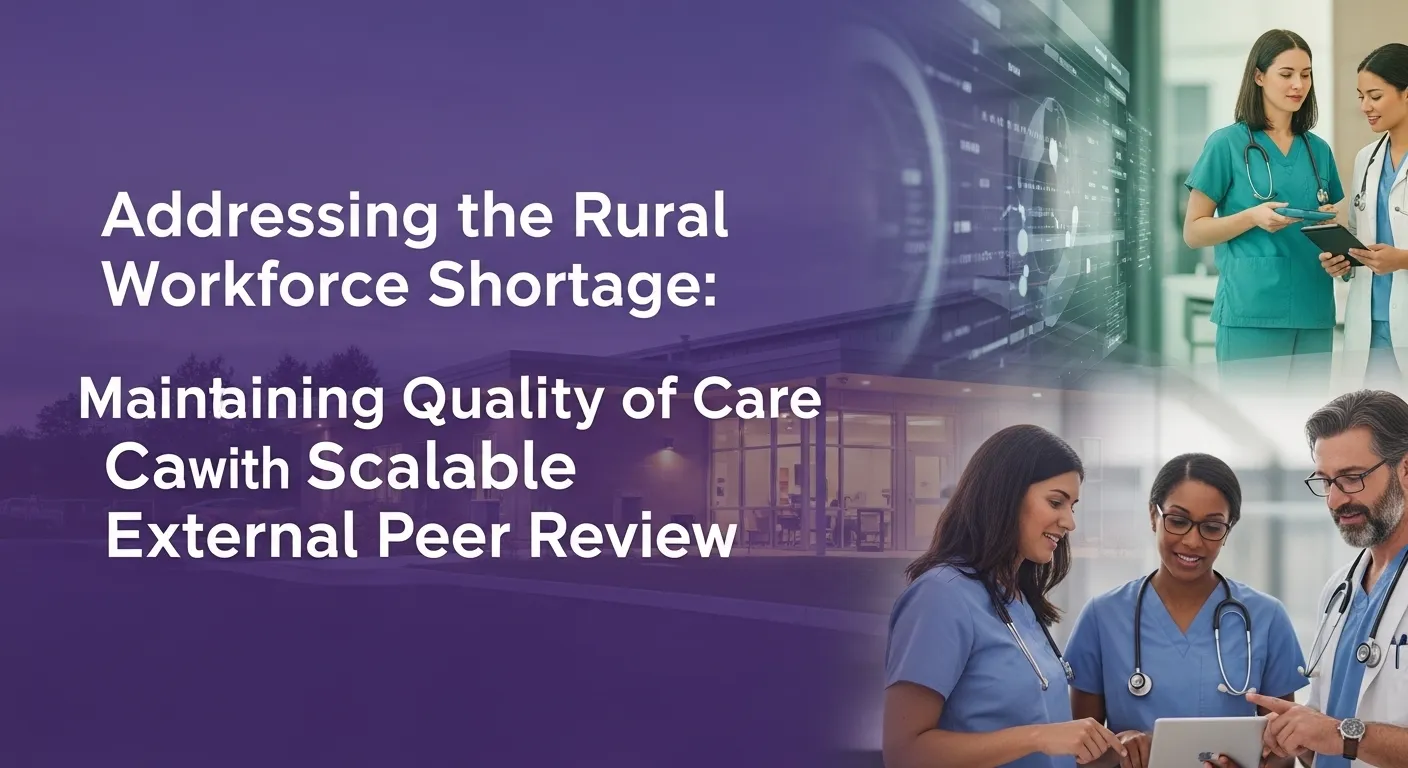
Table of Contents

Peer Review’s Historical Evolution Toward Enhanced Quality
How has medical peer review has evolved in healthcare? Learn how technology has taken the process far beyond its roots with the Joint Commission.

Medical Peer Review Origins
Peer review, a fundamental process in the healthcare industry, has a history that dates back to the 1950s. Its roots lie in the pressing need for standardized hospital safety information and the aim to improve patient safety while providing reliable medical services. Over the years, peer review has undergone significant changes, and today, innovative platforms like Medplace are leading the charge in further advancing this critical evaluation system.
In the 1950s, healthcare administrators recognized the vital role of providing patients with trustworthy information about medical services. The establishment of peer review, spearheaded by The Joint Commission of Accreditation of Healthcare Organizations (JCAHO), aimed to ensure transparency and accountability in healthcare facilities. Accreditation bodies made peer review a mandatory requirement for hospitals seeking accreditation, firmly integrating it into the healthcare landscape.
Unfortunately, the peer review process faced legal setbacks in the 1980s that the institution has not recovered from. Dr. Timothy Patrick, a vascular surgeon at Columbia Memorial Hospital, accepted a partnership at a competing clinic. In retaliation, his hospital fabricated peer review evidence that Dr. Patrick was involved in irresponsible behavior towards patients. Dr. Patrick sued and won the resulting lawsuit. However, many doctors and nurses cite fraud like CMH's as why they are hesitant to participate in peer review.
A Need for Modernization
However, the implementation of peer review varied from one healthcare organization to another. Some hospitals opted for internal committees to conduct quality reviews, while others sought external reviews for impartial evaluations. Additionally, aligned reviewer expertise is not required, raising discussions about bias.
In recent times, platforms like Medplace have emerged, introducing new possibilities to the peer review landscape. Medplace employs a combination of a human-centered designed platform and a network of 700 practicing medical experts to provide thorough, efficient, and specialized feedback in under six days. By comparison, legacy peer review processes can take up to six months. These advancements address the limitations of traditional peer review, enabling the healthcare industry to enhance the effectiveness of evaluations, leading to continuous improvements in medical services. Ultimately, this empowers healthcare professionals to elevate their skills and knowledge, benefiting patient safety and the overall quality of healthcare services.
A History of Continued Improvement
Peer review's historical journey from its inception in the 1950s to the present day has been pivotal in improving patient safety and ensuring quality healthcare services. As we embrace the advancements offered by platforms like Medplace, the healthcare industry stands on the cusp of a new era, benefitting from thorough feedback and increased efficiency to deliver exceptional care to patients.
Interested in modernizing your peer review process? Fill out the form below to get started and connect with the Medplace team.

Value-Based Care for FQHCs: How External Peer Review Drives Better Outcomes and Sustainable Revenue
Medplace external peer review helps FQHCs thrive in value-based care. Gain objective insights, cut compliance risk, reduce admin burden, and boost quality, provider satisfaction, & revenue.
.png)
.png)

Addressing the Rural Workforce Shortage: Maintaining Quality of Care with Scalable External Peer Review
Combat rural healthcare shortages and maintain quality with scalable external peer review. Medplace offers objective, specialty-matched reviews, reducing burden and ensuring compliance.
.png)
.png)

Unlocking Rural Health Transformation Grants: Leveraging Peer Review for Measurable Quality Outcomes
Medplace's external peer review transforms rural health grant applications. Objective, specialty-matched insights enhance documentation, compliance, and measurable quality outcomes.
.png)
.png)



.png)
.png)
.png)


.png)




.png)